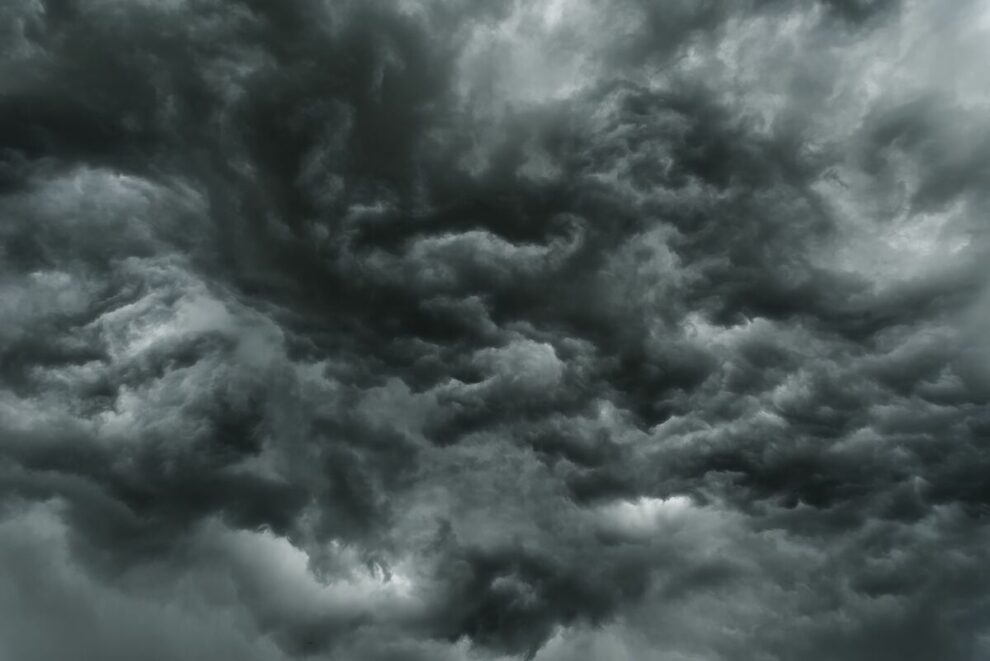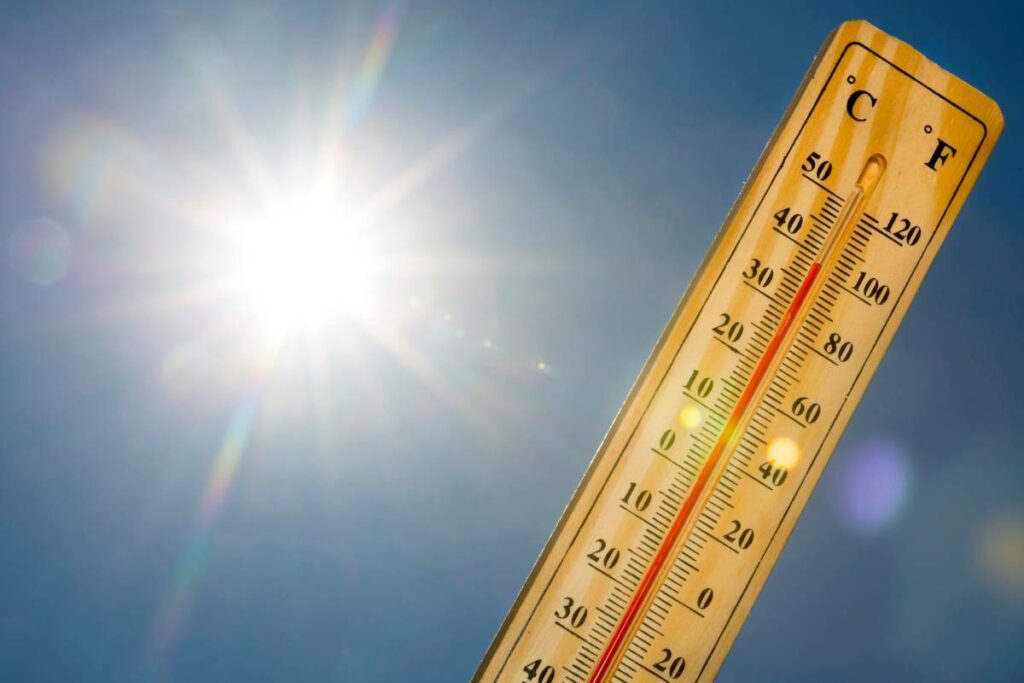You cannot open an email from almost any mainstream media outlet these days without being told something like “Heat is torching records and spreading across the U.S. and Europe” during an unprecedented, record “smashing” global heat wave. Often based on factual errors that will do until lies come along, like the Washington Post fib Tony Heller exposed about Fort Meyers, Florida having a “record” 89 days over 90 degrees when it had 169 such days in 1944. And when AP linked to a very useful NOAA tool summarizing records set in the U.S. and globally on a given date or date range, we compared July 15, 2023 to July 15, 2003. The latter broke more American records. Weird, huh? And (h/t Heller again) the proportion of U.S. weather stations recording a temperature of 95°F or higher has been falling steadily since 1931 and is at a record low so far this year. It’s almost as if journalists occupied a separate reality. Indeed Emily Pontecorvo wrote revealingly in Heatmap Daily that “The heat is weighing on me, and I don’t even live in the part of the country experiencing a prolonged, life-threatening heat wave.” Except rhetorically.
In that world, well, the world is ending and it weighs on people. The Washington Times chortled “GOP bill would shut down Biden administration’s ‘ecogrief’ training”, and it is hard to persuade oneself that America’s Founding Fathers sought in their Constitution to authorize the federal government to engage in such an activity. But it’s understandable that some people would need it, as some publication called Anthropocene despairs that “The impact of climate despair may now loom larger than the impact of climate denial”.
In which case surely you rather overdid it. Including the pernicious habit of predicting records before they are even set. As Vox apparently admits in saying (in a Flipboard Science Desk email) that “Climate anxiety is a real, pervasive feeling”. But then it perkily offers “Here’s how to handle it” adding the banality of alarmism to that of self-help.
According to the article to which that email linked, causing despair among their followers is one climate-related thing the alarmists have achieved:
“According to a survey conducted by the Yale Program on Climate Change Communication and the George Mason University Center for Climate Change Communication, one in 10 Americans reports experiencing anxiety because of global warming. Climate concerns are even greater among young people. Over half of respondents between the ages of 16 and 25 in an international study reported feeling very or extremely worried about climate change.”
What to do? What to do? Call Samuel Smiles or Dr. Phil:
“Managing your fears about climate change involves confronting your emotions to let them fuel positive action. Even in the darkest of times, it’s crucial to maintain a little bit of hope for the future.”
Oh that’s original. Anthropocene also ponders calling Dr. Frankenstein or Dr. Moreau, opining that one solution might lie in:
“Advances in brain hacking. The Affective Brain Lab at UCLA brings cognitive neuroscience to bear on human decision making and motivation, using everything from web browsing behavior to neuro-pharmacology. Electrically stimulating certain parts of the brain can even induce more sustainable decision-making (not a policy suggestion).”
Oh that’s a relief. They’re not actually suggesting brain probes to control peoples’ behaviour. At least not yet. Though they are, you know, mentioning them just in case.
Their other solutions are “Generational shifts” and “New angles on climate stories”. Though speaking of new angles, and at the risk of causing controversy by being genuinely original, another approach would involve checking the facts.
For instance we are told that “Phoenix Breaks Record With 19 Consecutive Days 110 Degrees or Higher”. But “Phoenix” turns out to mean Sky Harbor International Airport, aka “Arizona’s largest and busiest airport, and among the largest commercial airports in the United States” and also a military facility. Just the place to look for pristine measurements unaffected by Urban Heat Island effects like tarmacs and roaring jet engines.
As Ryan Maue pointed out, in 2018 AP cautioned that Phoenix was warming at three times the global rate. But, it said “The heat island effect is caused by local land use and energy decisions and is separate from global warming”. Today that kind of story would risk being fact checked by, oh, say, AP. Or by Tony Heller, who noted that the previous Phoenix record “of eighteen straight days over 110 degrees was set in 1974 during the ice age scare.”
The Times did admit that the previous record was set back then, and that “People in the Southwest are used to brutal summers. Phoenix has had plenty of days that soar past 100 degrees.” But it didn’t draw any useful conclusions, least of all that if you discount for the UHI, as the population grew rapidly since then and the city warmed a lot more than the surrounding desert including the signature UHI rise in summer nighttime lows, it’s still the record.
Then there’s the fact, unearthed by Heller again, that thus far in 2023 New York City has had six days over 90°F, the highest reaching 93. But in 1936 it had 26, topping out at 106. Which reminds some of us who grew up before metric that the generic standard for really hot versus just mildly annoying in our youth was “a hundred in the shade”.
So it happened a lot way back before Twitter. And there was also the one about how it’s “hot enough to fry an egg on the sidewalk”. Though according the U.S. Library of Congress it never is if you crack it directly onto the cement, in which case you wouldn’t want to eat it afterwards even if it did cook anyway. But the expression itself dates back to… what’s this? 1933? No. The first instance they found was even earlier, from June 1899, “so the idea had captured the American imagination and become one of our common sayings by that time.”
Gee. We wonder why. Maybe it used to be hot? Nah. Can’t be. Although Patrick Moore did point out that the maximum average June temperature in the contiguous United States has been declining for over a century even as CO2 has risen.
The New York Times story on the Phoenix record claims that “Much of the Northern Hemisphere is experiencing withering high temperatures, which scientists warn are increasingly likely.” There go the scientists who say again. But if it’s witheringly high, what has withered? Or do words not have meanings any more?
They don’t seem to. The Times also offered us “Heat Index Reaches 152 Degrees in Middle East as Much of the World Bakes”. The heat index being not the temperature, of course. And the world not baking either. It added “Conditions in Iran were recently pushed beyond what humans can withstand” although humans promptly withstood it. And NBC sent an email claiming “Extreme heat is choking continents around the world” which admittedly is where they are found. But which one choked? Was it loud? Did someone try the Heimlich manoeuvre?
It’s almost as if journalists were living in a different world than their readers. And a much nastier one, which is quite an accomplishment.
P.S. For good measure they could stop running features like “20 good reasons not to have children” full of heart-warming advice like “your romantic relationship will suffer” and “Kids are terrible for the environment” and “Babies make a lot of trash” and “Kids can hurt your earning power” and are bad for your physical, mental and social health and “can lead to divorce” and of course (all together now) “Kids contribute to climate change”. Boo, you little planet-trashing wretches who wrecked mommy and daddy’s sex life, job prospects, marriage, and bodies. Now what are you sniveling about?



There is no heatwave going on, the desert southwest is hot because, you know, it is the desert southwest. It has been a mild summer where I live, highs in the 80s for the most part, so far 2 each 90 degree days with the 90 degree mark being reached in the mid to late afternoon and a good number of days with highs in the mid 70s, all summer long our overnight lows have been in the mid 50s with a few exceptions into the low 60s. If this is global, climate, warming, change I will take it!
“Heat Index Reaches 152 Degrees in Middle East as Much of the World Bakes”. Not just misleading, but scientifically wrong, The heat index is an index. It has no unit of measure. You can say it hit 152, but you can’t call them “degrees”.
Scientific accuracy is supposed to matter nowadays, lest we subjected to the dreaded “misinformation”. Except, apparently, when trying to alarm people about climate change.
You can't do much baking at 152 C. I bake my bread at 220 C.
The UN is capitalising on the heatwave by pushing the carbon zero agenda The climate narrative that so many people believe in, including my own partner, I find daunting. Even disturbing ,as governments are shaping their policies around it. Were Stalin still alive, he would call these climate alarmists ' useful idiots'
Keep up the good work and keep pushing back.
Tony Heller does outstanding research. We need more guys like him. Thanks Tony and thank you John. Great to see this blog tipping the hat to Tony.